Extension Foundation Online Campus
Search results: 548

Course overview
This course explains why protecting different types of bees in integrated pest management is important to West Coast agriculture. This course is available for free. The
course contains video so it requires a device that can play audio and video.
Who should enroll?
Pest management agricultural professionals (including growers, PCAs, and certified crop advisers) who would like to gain practical knowledge that can be used to conserve bees (including non-Apis and native bees as well as homey bees) while managing pests effectively.
Continuing Education Units
This course is not approved for CEUs.
Enrollment period
This course must be completed by December 30 of the current year. Download the certificate immediately when you complete the course. You will not be able to retrieve your certificate after December 30.
- Technical support: UC IPM Online Training Support


Course overview
This course presents information on the Healthy Schools Act and on using integrated pest management, or IPM, methods in schools and child care centers. A third component of the course helps pest management professionals
comply with the Healthy Schools Act and expand their business. This course is available for free. The course contains video so it requires a device that can play audio and video.
Who should enroll?
Pest management professionals who provide, or would like to provide, pest management services in schools and child care centers
Continuing Education Units
California Department of Pesticide Regulation (0.5 hour Laws & Regs and 1.0 hour Other) and by the Structural Pest Control Board (1.0 hour Rules and Regulations and 1 hour IPM). This course meets the
annual training requirement of the Healthy Schools Act.
Enrollment period
This course must be completed by December 30 of the current year. Download the certificate immediately when you complete the course. You will not be able to retrieve your certificate after December 30.
- Technical support: UC IPM Online Training Support
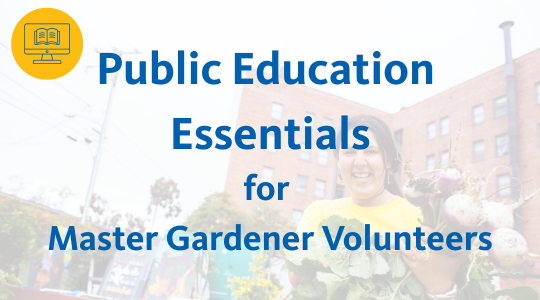
ENROLLMENT IS NOT OPEN FOR THIS COURSE
Course overview
Whether you’re new to public speaking or looking to brush up on your outreach skills, you’re in the right place. This course was designed just for you, UC Master Gardener volunteers who are passionate about sharing science based gardening knowledge but may feel unsure about stepping into the spotlight. You’ll explore extension teaching, practice inclusive communication, and prepare for successful public outreach through a clear and confident plan.
Who should enroll?
Active UC Master Gardener volunteers who are interested in participating in the Invasive Species Scout Project.
Continuing Education Hours
UC Master Gardeners are eligible for 8-10 hours of continuing education (CE) for completing this course.Need Help?
- For assistance with login, course enrollment, contact campushelp@extension.org
- For assistance with progress through the course or certificate, contact mgtraining@ucanr.edu
Funded by
University of California Master Gardener ProgramTeacher
Lauren Snowden, UC Master Gardener Online Training SpecialistTechnical Requirements
To ensure full functionality and a seamless learning experience, please review the following technical requirements before beginning the course.

- Teacher: UC Master Gardener Online Training Support
- Instructor: Lauren Snowden
This course is for student enrolled in the Irish Horse Industry Study Abroad course through Purdue University and the University of Nebraska.
- Teacher: Kathy Anderson
- Teacher: Colleen Brady
- Teacher: Natalie Carroll
Quantitative Genetics (Self-Paced) will present basic elements of quantitative genetics emphasizing implications to plant breeding, as well as providing practical experience in linkage and QTL mapping. The course is designed for you to complete it at your own pace. There are 9 different units, each on a different topic. Within each unit you will find video clips of recorded presentations followed by a short quiz. At the end you will also be given an opportunity to work with a data set. Time commitment will be approximately 25 hours. Completion will result in a Q genetics Badge.
- Teacher: Leah Sandall
Gracias por ingresar a la página Web para completar esta lección de Educación sobre Nutrición y Alimentos (EFNEP). Usted debió haber recibido una clave de inscripción de parte de su instructor. Ingrese esa clave de inscripción para acceder y completar esta lección.
- Teacher: Megan Berthiaume

The Reach Out for Wellness Course is designed to support the mental health needs of Extension professionals following natural disasters.
This research-based course is comprised of five modules with engaging videos and additional resources to help you reflect on your wellness and learn strategies to support your needs associated with disaster recovery.
Participation is free, self-paced and will help you:
- Better understand your own wellness.
- Gain insights on the personal impacts of natural disasters.
- Learn how to use your support system to cope with stress related to natural disasters.
- Instructor: Seth Teager
Este curso es para proveedores en hogares de cuidado infantil familiar. Esta capacitación en línea incluye videos, cuestionarios cortos y actividades. Tiene dos partes:
En la primera parte, usted aprenderá sobre las recomendaciones más recientes sobre QUÉ alimentos ofrecer a los infantes. Estos son los alimentos y bebidas recomendados. Repasaremos, como la leche materna, la fórmula láctea y el agua, granos, proteínas, frutas y verduras, así como los alimentos que deben evitarse, como el azúcar y la sal.
En la segunda parte, nos enfocaremos en el CÓMO alimentar a los infantes. Repasaremos la lactancia, la introducción a los alimentos sólidos y las prácticas generales de alimentación saludable. Al terminar estas dos partes, recibirá un certificado por haberlas completado.
El completer este curso proporciona 1.0 hora de contacto.
- Maestro: Danielle Lee
Este curso es para proveedores en hogares de cuidado infantil familiar. Esta capacitación en línea incluye videos, cuestionarios cortos y actividades. Tiene dos partes:
- En la Parte 1: Qué Alimentar a los Niños Pequeños, aprenderá las últimas recomendaciones sobre QUÉ alimentar a los niños pequeños. Estos son los alimentos y las bebidas que se recomiendan. Revisaremos la leche y otras bebidas, granos y proteínas, vegetales y frutas, y azúcar y sodio.
- En la Parte 2: Cómo Alimentar a los Niños Pequeños, nos centraremos en CÓMO alimentar a los niños pequeños. Revisaremos cómo evitar la asfixia, la alimentación receptiva, la frecuencia de comidas y refrigerios, las elecciones de alimentos y el entorno de alimentación.
El completer este curso proporciona 1.0 hora de contacto.
- Teacher: Danielle Lee
Este curso es para proveedores en hogares de cuidado infantil familiar. Esta capacitación en línea incluye videos, cuestionarios cortos y actividades. Tiene dos partes:
En la primera parte, usted aprenderá sobre las recomendaciones más recientes sobre QUÉ alimentos ofrecer a los infantes. Estos son los alimentos y bebidas recomendados. Repasaremos, como la leche materna, la fórmula láctea y el agua, granos, proteínas, frutas y verduras, así como los alimentos que deben evitarse, como el azúcar y la sal.
En la segunda parte, nos enfocaremos en el CÓMO alimentar a los infantes. Repasaremos la lactancia, la introducción a los alimentos sólidos y las prácticas generales de alimentación saludable. Al terminar estas dos partes, recibirá un certificado por haberlas completado.
El completer este curso proporciona 1.0 hora de contacto.
Este curso es gratis para los residentes de California. Los residentes fuera del estado necesitan pagar $15 para acceder este curso. Si desea comprar este curso, por favor haga clic en el siguiente botón.
- Teacher: Danielle Lee
Este curso es para proveedores en hogares de cuidado infantil familiar. Esta capacitación en línea incluye videos, cuestionarios cortos y actividades. Tiene dos partes:
- En la Parte 1: Qué Alimentar a los Niños Pequeños, aprenderá las últimas recomendaciones sobre QUÉ alimentar a los niños pequeños. Estos son los alimentos y las bebidas que se recomiendan. Revisaremos la leche y otras bebidas, granos y proteínas, vegetales y frutas, y azúcar y sodio.
- En la Parte 2: Cómo Alimentar a los Niños Pequeños, nos centraremos en CÓMO alimentar a los niños pequeños. Revisaremos cómo evitar la asfixia, la alimentación receptiva, la frecuencia de comidas y refrigerios, las elecciones de alimentos y el entorno de alimentación.
El completer este curso proporciona 1.0 hora de contacto.
- Teacher: Danielle Lee

En este curso aprenderás sobre las regulaciones de Idaho para la venta de alimentos caseros en Idaho, o "cottage foods" por su nombre en inglés. Al final de este curso, podrás:
- Reconocer qué tipos de alimentos se consideran alimentos caseros (o cottage foods) y
- Conocer las regulaciones que debes seguir para vender alimentos caseros en Idaho.
- Teacher: Paul Lewin
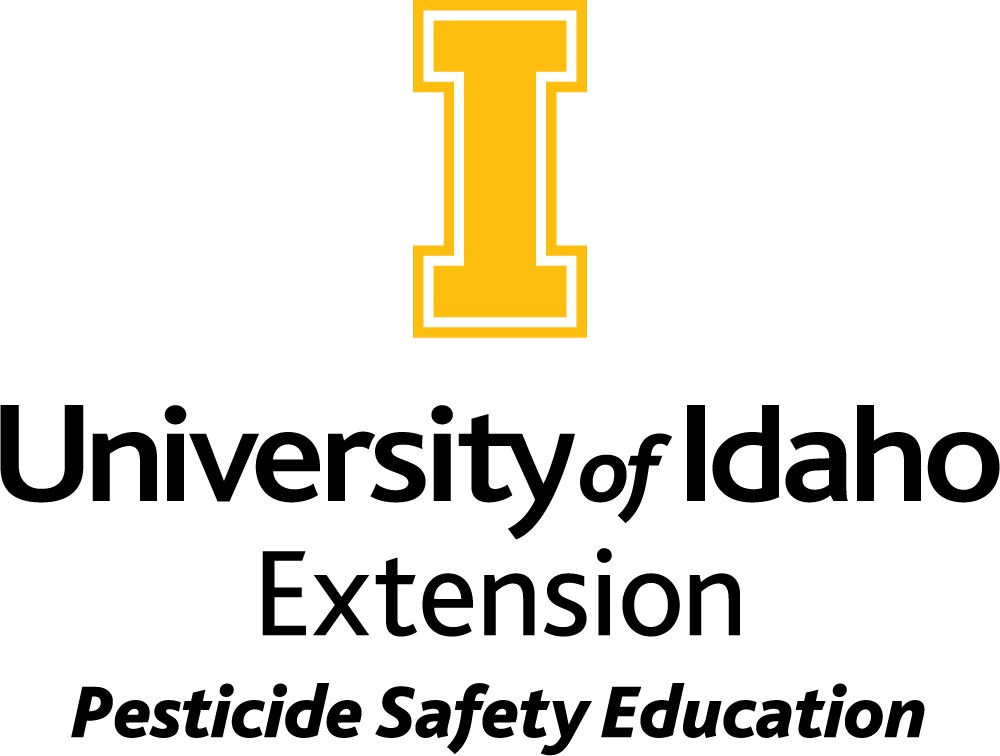
Recertification credits are available for this course.
This pesticide recertification course is designed to help applicators understand the cause of herbicide resistance. The course reviews common residential herbicides and methods to identify the herbicide groups for resistance management. IPM measures are also discussed to help control weeds around the home landscape without complete reliance on herbicides and discusses the importance of understanding how pH, hardness and turbidity can affect herbicide mixes.
This course has been approved by the Idaho State Department of Agriculture (ISDA) - Seminar #2024-636 for 1-ISDA pesticide credit.
If you have questions related to this course, please email: cals-ipm@uidaho.edu at University of Idaho Extension.
- Teacher: cals ipm
This module will cover
common respiratory hazards and diseases found in agriculture. The module also
discusses how to reduce exposures and the use, regulations and requirements,
and maintenance of the most commonly used respirators in agriculture.
This course is designed to take approximately 1 hour.One (1) Safety CEU is available for residents in the following states.
- Oklahoma
- Utah
Teacher for the course is Michael Wierda, Utah State University. He can be reached at michael.wierda@usu.edu.
- Teacher: Peggy Shuffstall
- Teacher: Michael Wierda
You will have access to three online instructional sessions to complete at your own pace. The session contains an outline to use for enhancing your study and quizzes to evaluate your knowledge.
The fee for this course is $25-one month access. To purchase and enroll in the course, click the following button:
- Teacher: cals ipm
- Teacher: Sonja Fuchs
- Teacher: Katherine Tyler
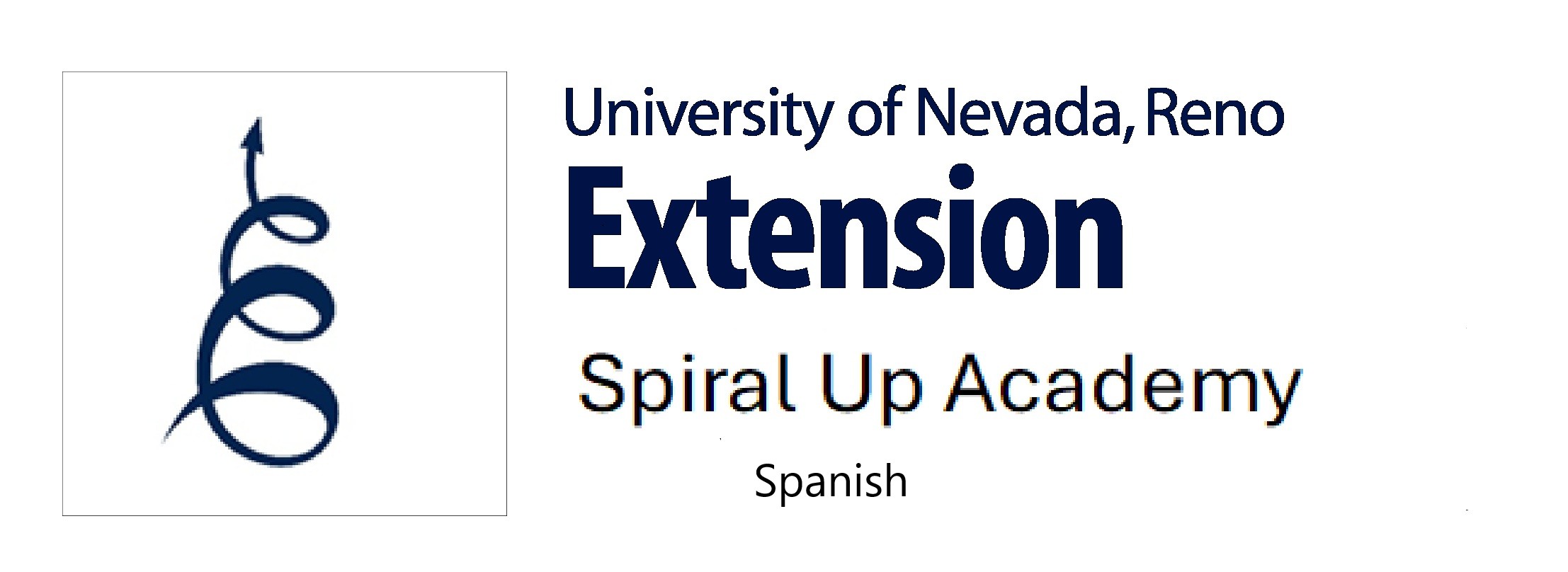
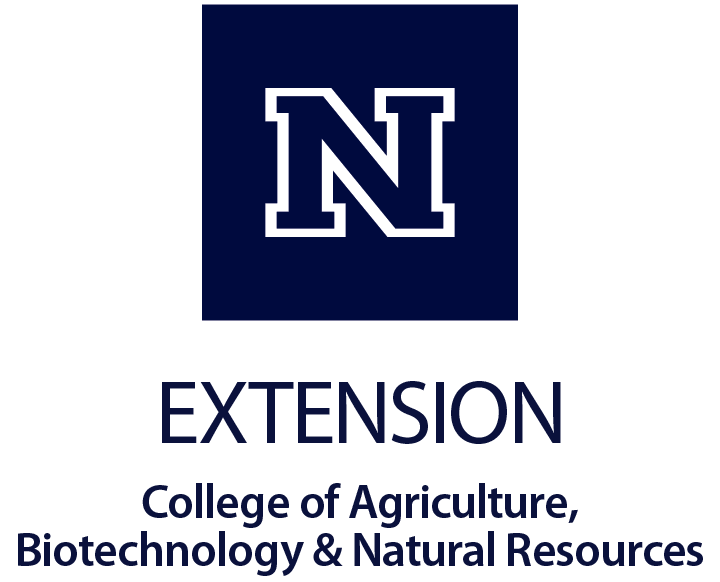
This course is restricted and only available to the University of Nevada Reno Extension Spiral Up Academy participants.
Este curso está restringido y solo está disponible para los participantes de la Academia Spiral Up de Extensión de Reno de la Universidad de Nevada.- Teacher: Cynthia James
- Teacher: Stephanie May
- Teacher: Danielle Pertile
- Teacher: Cathryn Peshlakai
- Teacher: Monica Salazar


This course is restricted and only available to the University of Nevada Reno Extension Spiral Up Academy participants.Este curso está restringido y solo está disponible para los participantes de la Academia Spiral Up de Extensión de Reno de la Universidad de Nevada.
Esta capacitación se centrará en aumentar la comprensión del desarrollo y los hitos de los niños, estrategias para apoyar el crecimiento y el desarrollo, reconocer las diferencias de desarrollo.
- Teacher: Cynthia James
- Teacher: Stephanie May
- Teacher: Danielle Pertile
- Teacher: Cathryn Peshlakai
- Teacher: Monica Salazar


This
course is restricted and only available to the University of Nevada Reno
Extension Spiral Up Academy participants.Este
curso está restringido y solo está disponible para los participantes de la
Academia Spiral Up de Extensión de Reno de la Universidad de Nevada.
Esta capacitación se centra en cómo los maestros priorizan el tiempo para establecer conexiones y relaciones con todos los niños pequeños y sus familias. Se introducen cuatro estrategias: aumentar el tiempo positivo, conversaciones significativas, unirse al juego e interacciones receptivas, y construir asociaciones familiares.
- Teacher: Cynthia James
- Teacher: Stephanie May
- Teacher: Danielle Pertile
- Teacher: Cathryn Peshlakai
- Teacher: Monica Salazar


This
course is restricted and only available to the University of Nevada Reno
Extension Spiral Up Academy participants.
Este curso está restringido y solo está disponible para los participantes de la Academia Spiral Up de Extensión de Reno de la Universidad de Nevada.
Esta capacitación se centrará en la importancia del juego, cómo los niños aprenden a través del juego, los diferentes tipos de juego, la creación de experiencias de juego que fomenten el desarrollo y la provisión de materiales apropiados para el desarrollo para involucrar a los niños en el juego.
- Teacher: Cynthia James
- Teacher: Stephanie May
- Teacher: Danielle Pertile
- Teacher: Cathryn Peshlakai
- Teacher: Monica Salazar


This
course is restricted and only available to the University of Nevada Reno
Extension Spiral Up Academy participants.
Este curso está restringido y solo está disponible para los participantes de la Academia Spiral Up de Extensión de Reno de la Universidad de Nevada.
En este tema, exploraremos cómo las siguientes grandes ideas funcionan juntas para crear un entorno de aprendizaje eficaz para los niños pequeños: Desarrollar horarios y rutinas diarias, Planificar e implementar transiciones y Enseñar expectativas y reglas.- Teacher: Stephanie May
- Teacher: Danielle Pertile
- Teacher: Cathryn Peshlakai
- Teacher: Monica Salazar


This
course is restricted and only available to the University of Nevada Reno
Extension Spiral Up Academy participants.
Este curso está restringido y solo está disponible para los participantes de la Academia Spiral Up de Extensión de Reno de la Universidad de Nevada.
En este tema, exploraremos cómo las siguientes grandes ideas funcionan juntas para crear un entorno de aprendizaje eficaz para los niños pequeños: Desarrollar horarios y rutinas diarias, Planificar e implementar transiciones y Enseñar expectativas y reglas.
- Teacher: Stephanie May
- Teacher: Danielle Pertile
- Teacher: Cathryn Peshlakai
- Teacher: Monica Salazar


This
course is restricted and only available to the University of Nevada Reno
Extension Spiral Up Academy participants.
Este curso está restringido y solo está disponible para los participantes de la Academia Spiral Up de Extensión de Reno de la Universidad de Nevada.
Esta capacitación se enfoca en el desarrollo profesional y en encontrar alegría al trabajar con niños y compañeros de trabajo.
- Teacher: Cynthia James
- Teacher: Stephanie May
- Teacher: Danielle Pertile
- Teacher: Cathryn Peshlakai
- Teacher: Monica Salazar
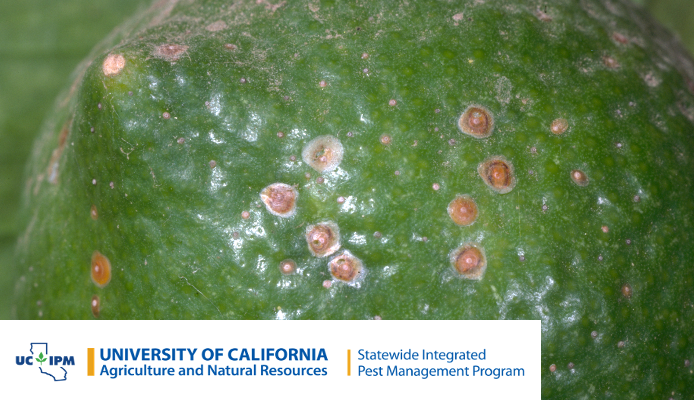

California Department of Pesticide Regulation (1.5 hour Other) and Certified Crop Adviser (1.5 IPM).
- For assistance with login, course enrollment, or payment, contact campushelp@extension.org.
- For assistance with progress through the course or certificate, contact UCIPMcourses@ucanr.edu.
- Technical support: UC IPM Online Training Support
Second Chances for Horses provides participants the opportunity to learn the unique challenges that accompany the adoption of second career horses. Including how to select an adoption facility, and common behavioral and physical considerations for second career horses. This course offers a badge and is one of several available in the HorseQuest Badge Portfolio. This course includes a video, a learning lesson, and a quiz.
For information contact Kathy Anderson, kanderson1@unl.edu- Teacher: Kathy Anderson
- Teacher: Colleen Brady

This course is free.
This course is open to:
- Researchers
- Organizations (including community-based and health systems)
- Decision-makers
- Project teams (including coalitions) who plan to use stakeholder-engaged research, to create research priorities or agendas.
- Community members
The Stakeholder Engagement in quEstion Development and prioritization (SEED) Method is a multi-stakeholder approach to engaging communities in research, problem solving, and action planning.
Developed by researchers at Virginia Commonwealth University and Virginia Tech, SEED provides a framework for collaborative research and action planning that can be scaled up or down depending on project resources and goals.
By the end of this course you will be able to …
- Understand how to apply the SEED Method to your collaborative projects
- Understand how to use and find SEED Method participatory tools
- Understand the roles of the community-based participatory Research Team and Topic Groups
- Understand how to utilize the following SEED Method participatory tools: stakeholder matrices, conceptual modeling, strategy development and prioritization
We are also on Connect Extension! For more information on the SEED Method, visit our site and join our SEED Method subgroup on Connect Extension at https://seed.extension.org/
- Teacher: Theodora Biney-Amissah
- Teacher: Samantha Lee
- Teacher: Carlin Rafie
- Teacher: Emily Zimmerman
This companion to the Seed Treatment National Pesticide Applicator Study Manual provides interactive content to assist people in understanding the material covered in the printed manual. The module contains concise information on each learning objective from the manual, a clickable glossary, and other interactive activities. This module should be used in association with the Seed Treatment—A National Pesticide Applicator Study Manual https://npsecstore.com/collections/seed-treatment-manual/products/seed-treatment-a-national-pesticide-applicator-study-manual.
The Seed Treatment Companion cost is $10. To purchase/enroll in JUST the course, click the Purchase/Enroll button below.
If you purchased the Seed Treatment Companion Manual/Module Bundle from the NPSEC Store, you received a code which gives you access to the module. Click the Purchase/Enroll button below and enter that code in the blank shown under the Voucher heading on the shopping cart page and click the Recalculate button.
- Teacher: Peg Shuffstall
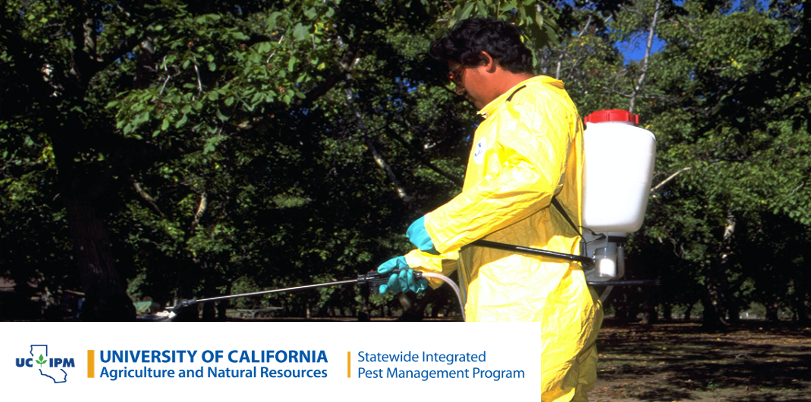

Sobre el curso
Los participantes aprenderán a seguir las instrucciones específicas de la etiqueta y el Código de Reglamentaciones de California (CCR) y podrán demostrar cómo seleccionar el PPE adecuado, usarlo, quitarlo y retirarlo o limpiarlo y almacenarlo antes, durante y después de cada incidencia de manipulación y aplicación de pesticidas.
La compra de este curso le da derecho a recibir un certificado de finalización. Tiene la opción de tomar este curso en inglés o en español. Si no necesita un certificado, puede tomar el curso de forma gratuita. Este curso tambié
n estádisponible en la versión inglés.El curso contiene video, por lo que requiere una computadora que pueda reproducir
audio y video.
¿Quién debería inscribirse en este curso?
Los asesores de control de plagas, los manipuladores de pesticidas y los productores
Créditos de Educación Contínua
Departamento de Reglamentación de Pesticidas de California (1.5 horas de Leyes y Reglamentaciones), Asesor de Cultivos Certificado (1.5 de IPM), y Capítulo Occidental de la Sociedad Internacional de Arboricultura (1.5 para Arboristas Certificados y 1.5
Práctica para Arboristas Certificados por la Junta).
Para obtener el certificado de Unidades de Educación Contí
nua se le cobrará una tarifa de $60.
Para fomentar la realización del curso a principios de año, ofrecemos un 50 % de descuento sobre el precio normal desde enero hasta el 31 de octubre; utilice el código ipm50 al finalizar la compra.
Descargue el certificado(archivo
PDF) para recibir tus créditos CEU.
Período de inscripción
Este curso debe completarse antes del 30 de diciembre del año en curso. Descargue el certificado inmediatamente después de completar el curso. No podrá recuperar su certificado después del 30 de diciembre.
¿Necesita ayuda?
Para obtener ayuda con el inicio de sesión, la inscripción al curso o el pago, comuníquese con campushelp@extension.org. Para obtener ayuda con el progreso del curso o certificado, comuníquese
con UCIPMcourses@ucanr.edu.
- Technical support: UC IPM Online Training Support
The target audience is the college graduate level learner and agriculture professionals.
Teachers include: P. Stephen Baenziger, Leah Sandall, and Diane Nolan
For more information or to enroll contact Kathy Schindler at kschindler1@unl.edu or 402-472-1730
- Teacher: Diane Nolan
- Teacher: Leah Sandall


Descripción General del Curso
La Serie de Gestión Financiera para Voluntarios es una colección completa de módulos de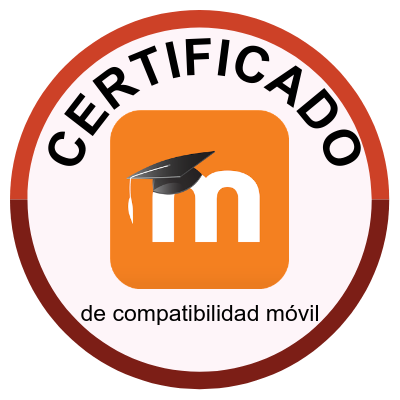 formación en línea diseñados para dotar a los voluntarios de habilidades esenciales de gestión financiera adaptadas específicamente para los Programas de Desarrollo Juvenil 4-H. A través de esta serie estructurada, los participantes obtendrán los conocimientos y las herramientas necesarias para garantizar la integridad financiera, el cumplimiento y la utilización eficaz de los recursos dentro de sus respectivas organizaciones 4-H.
formación en línea diseñados para dotar a los voluntarios de habilidades esenciales de gestión financiera adaptadas específicamente para los Programas de Desarrollo Juvenil 4-H. A través de esta serie estructurada, los participantes obtendrán los conocimientos y las herramientas necesarias para garantizar la integridad financiera, el cumplimiento y la utilización eficaz de los recursos dentro de sus respectivas organizaciones 4-H.
La serie incluye:
- Módulo 1: Fundamentos de la gestión financiera.
- Módulo 2: Cuentas bancarias y responsabilidades de los firmantes.
- Módulo 3: Planificación, recaudación de fondos y gestión de recursos.
- Módulo 4: Donaciones, becas y consideraciones especiales.
- Módulo 5: Informes financieros anuales y cumplimiento normativo.
- Módulo 6: Responsabilidades financieras de los asesores del tesorero de 4-H, los tesoreros de club, los tesoreros de VMO y los directores financieros de VMO.
- Módulo 7: Excedentes de fondos, procesamiento financiero, desembolsos e impuestos.
Duración
Cada módulo dura entre 7 y 15 minutos, con una duración total del curso de aproximadamente 75 minutos. El trabajo del curso se puede completar en varias sesiones (tendrás la opción de continuar donde lo dejaste).
Quién Debe Asistir
Voluntarios adultos de California que desempeñan una función financiera en el programa 4-H, como líderes de clubes, tesoreros de VMO, asesores de tesorería.
- State Administrator: Zeva Cho
- State Administrator: CA 4-H eXtension Tech Support
- State Administrator: Scott Mautte
- State Administrator: Gemma Miner
